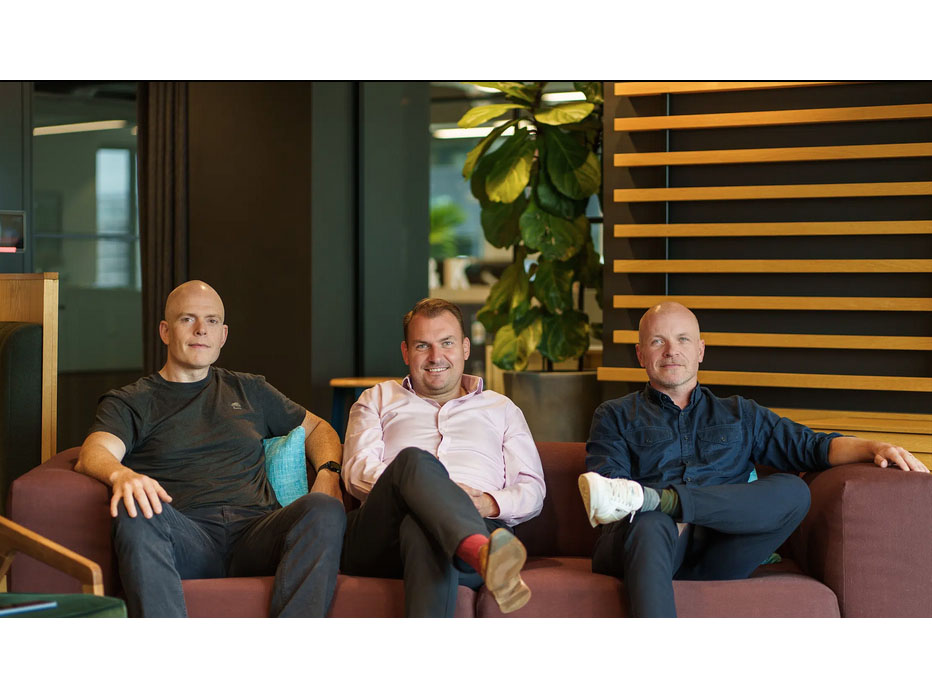Industry Talk
Riding the Wave of Change: Transformative Trends in Advertising – by Terry Kane of The Trade Desk
December 26, 2023
.jpg) Advertisement
AdvertisementWhat should marketeers in the Middle East prepare for in 2024?
Marketeers need to get ready for the phasing out of the third-party cookie and gain experience with alternative Identity solutions. The inadequacy of these cookies for data-driven advertising – originally designed for e-commerce in the 90s – is glaringly apparent in today’s omnichannel landscape, particularly with emerging channels such as streaming TV and audio, where users tend to be logged-in and no cookies are present anyway.
The imminent phasing out has already led to the development of identity solutions that cover the entire internet, not just the browser, thereby enabling targeting, frequency capping and measurement across all digital channels. It is unlikely that only one solution will remain, but rather a patchwork of different options to assemble a meaningful depiction of consumer behavior and engagement across all online channels. Interoperable open-source technologies like Unified ID 2.0 are likely to build a foundation to connect individual ID solutions.
How can marketeers navigate a cookieless future?
In order to benefit from these new options, it is essential that brands become identity savvy. With display, video, audio and mobile ad-spend all seeing impressive growth, marketers know that their consumers live beyond desktop browsers. According to a recent survey commissioned by The Trade Desk in the UAE with market research company YouGov, 67 percent of respondents’ digital time was said to be spent on the open internet versus walled gardens. Understanding where their audiences are across the open internet, and which identity solutions are best to connect with them, will be imperative for brands to hit the ground running once the cookie is retired.
In a post-cookie landscape, AI-powered digital advertising will be crucial in locating the right advertising opportunity at the right time, especially as we are seeing increasingly varied and fragmented media consumption.
What are the future tools of the advertising industry?
The short answer is: most will be based on Artificial Intelligence. With the support of AI, marketeers are able to apply an efficient, scalable, and targeted approach to connect with audiences and to consolidate all the different channels and advertising formats on the open internet. The major advantage of AI is its ability to analyze huge amounts of data to make data-driven insights much more accessible. For example, at The Trade Desk we evaluate about 13 million of these opportunities each second. This powerful technology enables advertisers to maximize their ad budgets, optimize their campaigns and accelerate their performance by reaching their audiences where they spend their digital time. Which, by the way, is predominantly on the open internet - outside of Search and Social.
Powered by AI, programmatic advertising is a data-driven way of buying and selling advertising spaces across all devices, markets and channels in real time. Leading brands and advertisers use it across multiple touchpoints, including display, video, digital audio, connected TV and even digital out-of-home, which means they can reach their target audience whenever and wherever they are online. Programmatic advertising also helps marketeers to measure the effectiveness of their advertising campaigns, by providing real-time data on impressions, clicks, conversions, and therefore, tangible business outcomes.
Is programmatic advertising available in the Middle East?
Yes, data-driven advertising is available across the globe, of course including MENA. Hundreds of integrated inventory and data partners world-wide provide our clients with a breath of options on all digital channels on the open internet. For example, we have airlines conducting campaigns in the US and Europe from their desks in Dubai. Or luxury goods advertising from here to the relevant consumers in China. In the Middle East we also have strong partnerships, across the ecosystem, with close ties to many of the largest broadcasters and publishers. Our regional and global partnerships offer advertisers a media-buying experience that’s independent, objective and helps them reach audiences through data-driven targeting, allowing them to launch and manage their digital campaigns across multiple channels, including desktop, mobile, digital audio, Connected TV and Digital-Out-Of-Home (DOOH).
Which trend do you predict will be paramount in a future of fragmented media consumption?
Personalization will accelerate advertising efficiency even more. In the rapidly evolving digital landscape, the effectiveness of advertising hinges on the ability to deliver personalized, relevant, and impactful messages to the right audience at the right time. In particular as media consumption has become extremely fragmented for all of us. We listen to podcasts in the morning, see digital signage while commuting, look at websites during work and enjoy our favourite drama series on a connected TV in the evening, all while our smartphone is a constant companion. Planning and executing advertising campaigns that tell a relevant story across all channels used by the respective audience, requires creative intuition coupled with machine power to analyse millions of data points to decide, which ad to display where at which time.
“Advertisers and their media teams, who rely heavily on emotional ads on the big screen should start gearing up for Connected TV, as it is one of the most dynamic parts of the TV market with a rapidly growing audience.”
With the rise of Connected TV (CTV), what does the future of TV advertising look like?
We live in the era of streaming and quality advertising. A recent survey by The Trade Desk in partnership with market research company YouGov revealed that UAE residents spend nine hours daily with digital media on various channels and devices outside of social media. Of that time spent on the open internet, Connected TV (CTV) accounts for 17 percent. The switch in viewing habits to CTV content is a rising consumer trend in the UAE, resulting from the growth of streaming platforms and the availability of diverse content.
Not only is CTV here to stay, but it is a fast-growing sector as platforms and broadcasters refine their offerings for both viewers and advertisers. Connected TV offers plenty of potential for advertisers, not least the ability to reach an audience that is often increasingly moving away from linear TV and instead proactively choosing content. Advertisers and their media teams, who rely heavily on emotional ads on the big screen should start gearing up for Connected TV, as it is one of the most dynamic parts of the TV market with a rapidly growing audience.
Will retail data be a game changer in the future of digital marketing?
In a post-cookie environment, retail data will be a crucial piece of the omnichannel puzzle as it provides a more holistic view, connecting shopping to the broader digital marketing journey. Retailers have powerful information about shoppers - from their online browsing behaviors to what might have been in their closer consideration and, most importantly, the items that make it to the final transaction. The decision by major retailers to disclose information on shopper behavior is a key leap for the advertising industry. Allowing advertisers to extract insights from this data will radically change digital marketing. By allowing brands to optimize and attribute touch points in the pursuit of the most important KPI of all: sales.
Terry Kane is Managing Director Middle East & Africa at The Trade Desk, based in Dubai. Terry, who was born in Ireland and has lived in the UAE since 2008, has over 20 years of experience in the field of advertising and digital media. A broad range of executive positions across different sectors gave him comprehensive experience in tech, digital strategy as well as sales & marketing. Over the past nine years Terry held multiple leadership roles at Meta, and prior to that, led digital strategy for the Jumeirah Group for eight years. Terry holds multiple undergraduate degrees from leading universities in the UK and Ireland, an MBA from London Business School, as well as several local and international board positions.



.jpg)










